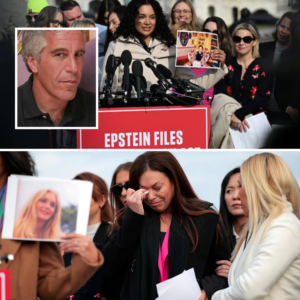On September 12, 2025, authorities announced a breakthrough in the investigation into the assassination of Charlie Kirk, a prominent conservative activist and close ally of former U.S. President Donald Trump. The suspect, identified as 22-year-old Tyler Robinson, was apprehended following a tip from his own family, revealing a shocking twist: Robinson was a former top-performing university student with no prior criminal record. The killing, which took place on September 10, 2025, during a public event at Utah Valley University (UVU) in Orem, Utah, has sent shockwaves through the United States, reigniting debates over political violence, gun control, and the deepening polarization in American society.
The Assassination of Charlie Kirk
Charlie Kirk, aged 31, was a well-known figure in American conservative circles, celebrated for his role as the co-founder and executive director of Turning Point USA (TPUSA), a nonprofit organization focused on promoting conservative values among young people, particularly college students. Known for his fiery rhetoric and unapologetic support for Donald Trump’s “Make America Great Again” (MAGA) movement, Kirk was a polarizing figure, admired by many on the right and criticized by those on the left for his controversial stances on issues like gun rights, immigration, and transgender rights.
On the afternoon of September 10, Kirk was addressing a crowd of approximately 3,000 people, mostly students, at UVU as part of his “American Comeback Tour,” a series of speaking engagements organized by TPUSA. The event, styled as a “Prove Me Wrong” debate, invited attendees to challenge Kirk’s views on political and social issues. Around 12:20 p.m. local time, as Kirk was responding to a question about gun violence in America, a single shot rang out. The bullet struck him in the neck, causing him to collapse immediately. Despite efforts by his security team to rush him to a hospital, Kirk succumbed to his injuries shortly after.
Eyewitness accounts described a scene of chaos as attendees fled in panic. Videos captured by mobile phones quickly spread across social media platforms, showing the moment Kirk was shot and the ensuing pandemonium. One witness, UVU student Jordan Last, recounted standing about 15-30 meters from the stage when he heard a loud noise, initially mistaking it for applause. Another witness, Emma Pitts, described seeing Kirk’s body jerk to one side as blood poured from his neck, a moment she said would haunt her forever.
The Investigation and Arrest
The investigation into Kirk’s assassination began immediately, with local and federal authorities, including the FBI, launching a manhunt for the shooter. Initial reports suggested a suspect had been detained, but this individual was later released after questioning, as they were found to have no connection to the crime. Security camera footage from UVU provided crucial leads, capturing images of a person wearing dark clothing, sunglasses, and a cap, moving toward the roof of the Losee Center, a building approximately 180 meters from the event stage. Additional footage showed the suspect fleeing the scene, jumping from the rooftop, and disappearing into a nearby residential area.
On September 11, authorities announced the recovery of a bolt-action rifle believed to be the murder weapon, found hidden in a forested area near the university. The rifle bore significant clues: one unspent bullet was inscribed with the phrase “Take this, fascist!” and another had lyrics from the Italian anti-fascist folk song Bella Ciao etched into it. These findings suggested a possible ideological motive behind the attack, though investigators cautioned against premature conclusions.
The breakthrough came on September 12, when Tyler Robinson was identified and arrested. According to Utah Governor Spencer Cox, Robinson’s father urged his son to turn himself in and alerted a local pastor, who contacted authorities. Robinson, a 22-year-old Utah resident, was charged with first-degree murder with aggravating circumstances, discharging a firearm causing serious injury, and obstructing justice. A Utah judge ordered him held without bail in the Utah County Jail.
A Shocking Profile: The Suspect’s Background
What stunned the public most was Robinson’s background. Described as a former top student at a prestigious university, Robinson had no prior criminal record, making his alleged involvement in such a high-profile crime all the more surprising. While authorities have not disclosed the specific university he attended, sources indicate he excelled academically, earning accolades for his intellectual achievements. Friends and family described him as reserved but increasingly vocal about political issues in recent years.
According to Governor Cox, Robinson had expressed negative sentiments about Kirk during a family dinner, criticizing the activist’s views and his upcoming appearance at UVU. Messages uncovered on the Discord app, shared by Robinson’s roommate with investigators, revealed further details. Robinson had discussed obtaining a rifle from a hidden location and leaving it in a wooded area after the shooting. These messages also referenced the inscriptions on the bullets, suggesting premeditation.
Investigators believe Robinson acted alone, though the investigation remains ongoing to rule out any accomplices. The lack of a criminal history and his academic success have raised questions about what drove him to commit such an act. Some speculate that Robinson’s growing engagement with political activism, possibly fueled by online echo chambers or ideological radicalization, may have played a role, though authorities have yet to confirm a definitive motive.
Political Reactions and National Fallout
The assassination of Charlie Kirk has intensified the already fraught political climate in the United States. President Donald Trump, who described Kirk as a “legend” and a potential future president, ordered flags to be flown at half-staff across the country until September 14, 2025, in honor of his ally. In a post on Truth Social, Trump expressed profound grief, writing, “Charlie Kirk, a great and even legendary man, has passed away. No one understood or had a heart for America’s youth more than Charlie.” Trump also announced plans to posthumously award Kirk the Presidential Medal of Freedom, the nation’s highest civilian honor.
Other prominent figures across the political spectrum condemned the killing. Former President Barack Obama called the act a “heinous act of violence” with no place in a democratic society. Vice President J.D. Vance, who accompanied Kirk’s body on Air Force Two to his hometown of Phoenix, Arizona, for burial, described the loss as devastating to the conservative movement. Internationally, leaders like Israeli Prime Minister Benjamin Netanyahu and Russian envoy Kirill Dmitriev also expressed condolences, with Netanyahu stating that Kirk was targeted for “speaking truth and defending freedom.”
However, the incident has also fueled partisan rancor. Some conservative commentators, including Trump, have pointed fingers at inflammatory rhetoric from the political left, accusing it of inciting violence. Meanwhile, Democratic lawmakers, such as former Congresswoman Gabby Giffords, a survivor of a 2012 shooting, reiterated calls for stricter gun control measures, arguing that the accessibility of firearms enables such tragedies. The U.S. House of Representatives saw heated debates, with accusations flying between parties, prompting Speaker Mike Johnson to call for order amid shouts for gun reform.
The Legacy of Charlie Kirk
Charlie Kirk’s death marks a significant loss for the conservative movement. At just 18, he co-founded TPUSA, which grew into a powerhouse with chapters at over 850 universities, advocating for free-market principles, limited government, and conservative values. Kirk’s charisma and willingness to engage in public debates made him a polarizing yet influential figure. His podcast, The Charlie Kirk Show, attracted millions of listeners, and his frequent appearances on Fox News amplified his reach.
Critics, however, pointed to Kirk’s controversial statements, including his skepticism about COVID-19, his support for claims of 2020 election fraud, and his criticism of transgender rights and immigration policies. These stances made him a lightning rod for criticism, with some labeling him a purveyor of misinformation. Nevertheless, supporters argue that Kirk’s commitment to open dialogue, as exemplified by his “Prove Me Wrong” events, sought to bridge divides through discourse rather than violence.
A Nation on Edge
The assassination of Charlie Kirk has reignited debates about the state of political discourse in America. The fact that a young, high-achieving individual with no criminal history could commit such an act has left many questioning the factors driving political violence. Governor Cox urged the public to ignore misinformation and avoid escalating tensions, warning that “adversaries want more violence.” The FBI’s $100,000 reward for information leading to the suspect’s capture underscored the urgency of resolving the case, which has now culminated in Robinson’s arrest.
As the nation mourns Kirk and grapples with the implications of his death, the incident serves as a stark reminder of the challenges facing a deeply divided society. Whether it leads to meaningful conversations about gun control, political rhetoric, or the radicalization of youth remains to be seen. For now, the focus remains on seeking justice for Charlie Kirk and understanding the motives of a young man whose actions have left an indelible mark on the American political landscape.




